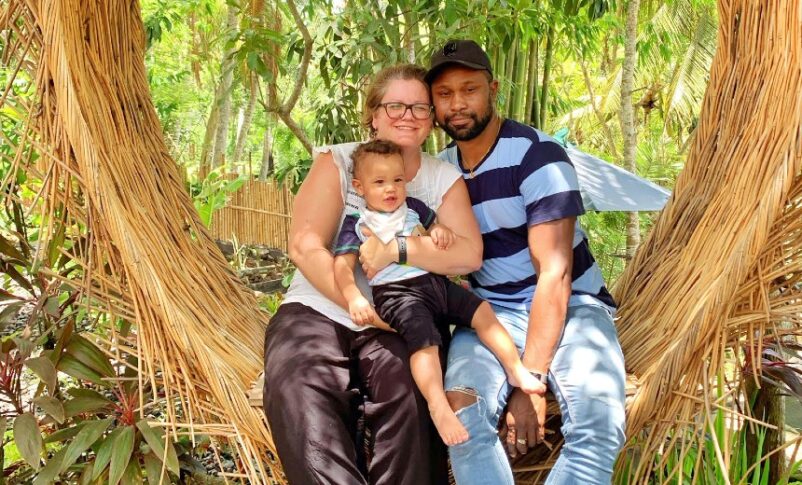How The Coronavirus Pandemic Separated Guyanese Man From His Canadian Wife And Kids
Before the COVID-19 pandemic, Jestina Beskowiney was an itinerant teacher, trotting the globe searching for her next gig.
Work has taken her to England, the Arctic, Latin America and the Middle East. In February 2020, she was living in China with her partner, Lance Glen, and their young son, Luka.
When COVID-19 was only beginning to take hold of the country, the school she worked at sent its teachers home, with Beskowiney under the impression they would return within a few months to resume life as before.
“I have not, in the last 20 years, been in one country longer than three months. I’m a traveller, right?” she said.
More than a year later, a different life has taken root, one she has been living apart from the father of her child.
When the couple left China, Beskowiney and Luka flew to Regina, where they have been living since.
Glen, a Guyanese citizen, returned to his home country to do research for his master’s thesis in highway and railway engineering. He was expecting to return to Canada later.
But as a worldwide pandemic was declared, countries imposed restrictions on movement and travel.
Complicating matters, she said Glen’s scholarship came with conditions, including three years of service to the Guyanese government upon completion of his degree. Also as part of the deal, he would need permission to travel outside the country, she said.
“His application for leave is sitting on a desk, and we’re hoping somebody gets to it at some point,” she said.
Beskowiney is adjusting to grounded life. She is living with her mother again. It comes with help child-rearing. That’s helpful, because Beskowiney has become a single parent.
“I’m lucky that I have support. I don’t know how single parents do it, who don’t have support because this is hard,” she said.
She and Glen keep their relationship strong by making time to connect through technology, playing games, sharing photos and videos.
“The key is just lots of talking, right? As much open communication as you can possibly have,” she said.
Many of their conversations are about Luka, who has turned two years old. Over time, Beskowiney’s ringtone fills in for his father’s voice. One day, Luka is riding in Glen’s work truck. The next, familiar sounds trigger distant memories.
“We were walking the other day and somebody was backing up their car and it started beeping,” she said. “Luka just turned around, he’s like, ‘Dada?’ which is heartbreaking, right? Because it’s just those sounds that he associates with that.”
Beskowiney outlines a multi-stage process to reunite her family.
First, Glen needs approval from the Guyanese government to leave the country. Then, he needs to obtain a COVID-19 test and test negative within 72 hours of boarding a plane — a challenge because it’s been difficult accessing testing and getting prompt results in Guyana, she said.
If Glen, who has a visitor’s visa, manages to reach the Canadian border, he would need an agent to deem his travel essential, she continued.
A COVID-19 vaccine would open other options. When she gets hers, Beskowiney said she will likely travel to join Glen. The destination in mind is Brazil, where there’s a special school she wants to send Luka. But it could be anywhere because in her case, home isn’t just where you’re tied to, but to whom.
“I’ve got a maple leaf tattooed on my chest, right?” she said. “I’m a very proud Canadian and Regina is home because that’s where my parents and siblings are. But now I think home’s wherever Luka and Lance are.”
